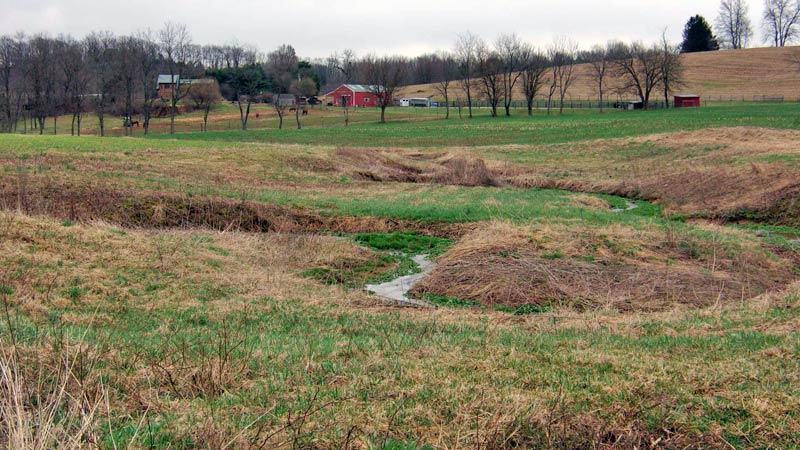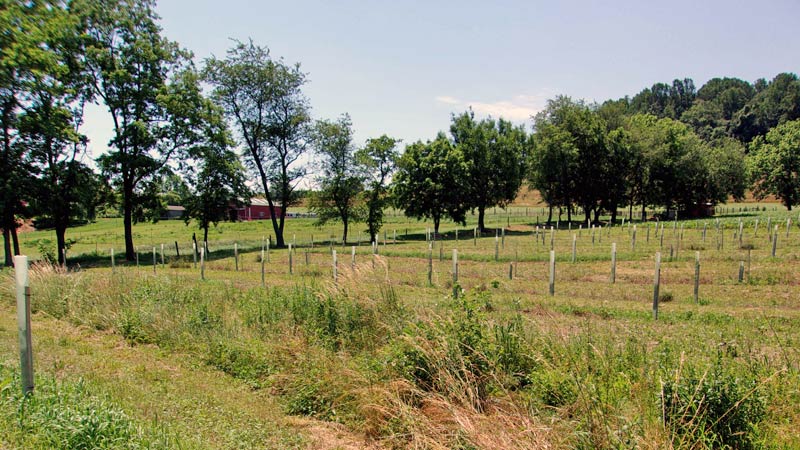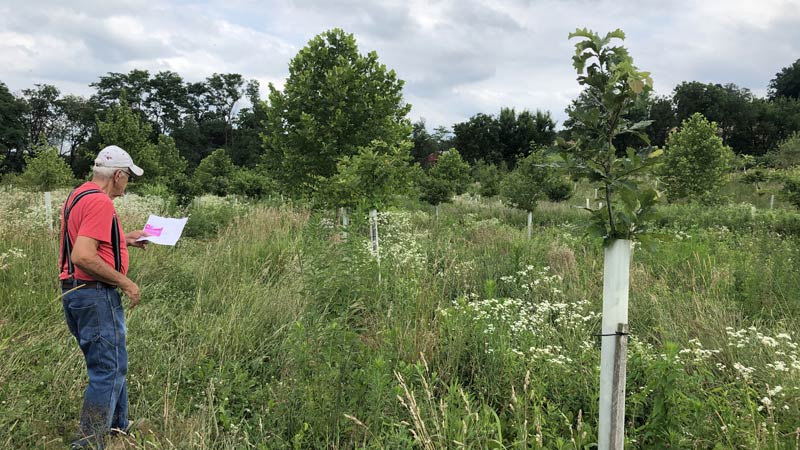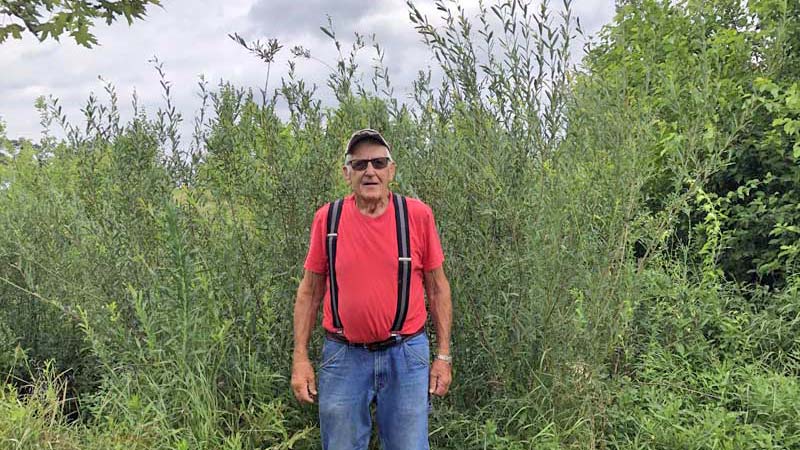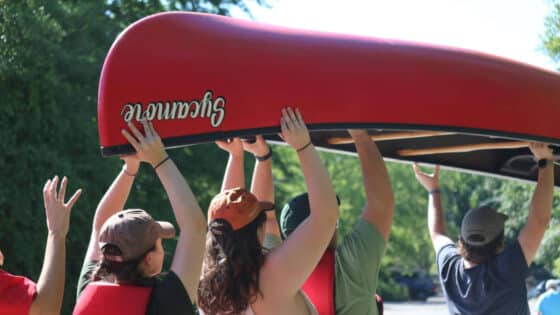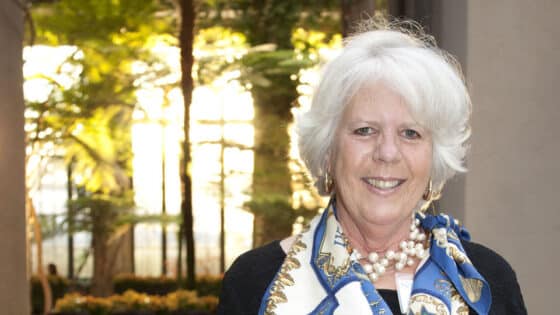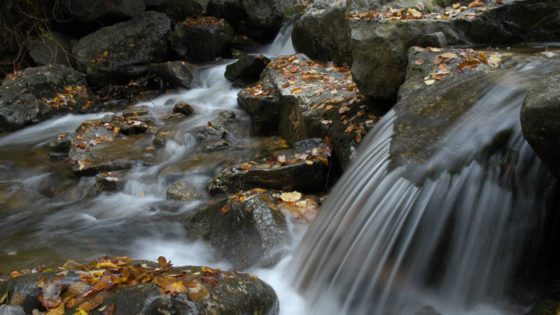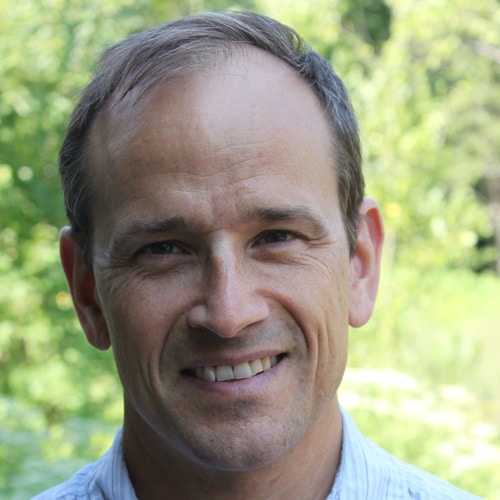
Back in 2017, you may have read about the Miller family, an early cooperator in Stroud Water Research Center’s Farm Stewardship Program. At that time, Bud and Marilyn Miller were the proud but somewhat anxious overseers of a new 11-acre tree and shrub planting that surrounds the spring-fed stream on their historic farm in Berks County, Pennsylvania.
While excited about the clean water legacy they hoped to leave their children, grandchildren, and great-grandchildren, tree care and maintenance tasks loomed. Fast forward four years and a beautiful transformation has unfolded on their property.
Healthy trees and shrubs, some 30 feet tall, are bursting out of their shelters. Wetland and riparian wildflowers are producing abundant nectar for pollinators.
Special “sticks” (called livestakes) that were jammed into the streambanks four years ago are now thriving shrubs of dogwood and willow. Pioneer locust and walnut trees, naturally seeded from an adjacent forest, are joining the party.
Such success takes work. Bud spent countless hours in all seasons tending his restoration sanctuary. Mowing, spraying invasive plants, fixing tree shelters, replanting bare spots, and other tasks kept him busy. Just as important, Bud and Marilyn kept in close contact with the Stroud Center and our partners so that we could help them be the best buffer stewards possible.
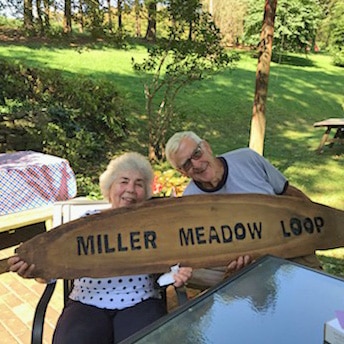
The work is not done, but the Millers now spend more time enjoying their “stream garden” and the many songbirds, butterflies, bees, mammals, and other wildlife that are finding homes and food in this lush habitat.
“We’re seeing a lot more activity in the water too, with more insects and small fish,” Bud said. We really appreciate Stroud Center staff for their wisdom, help, and encouragement.”
To celebrate, this fall the extended family dedicated their favorite walking path around the buffer as the “Miller Meadow Loop,” in honor of Bud and Marilyn’s 61st wedding anniversary.
This watershed story reflects broader progress underway in Berks County, an important agricultural region in the wider Delaware River Watershed Initiative.
The Miller’s tiny creek is among the thousands of miles of streams feeding the Schuylkill River, a significant tributary to the Delaware River and the source of drinking water for nearly two million people. The Stroud Center and dozens of organizations are partners in the effort, working to restore water quality and habitats throughout the Schuylkill watershed.
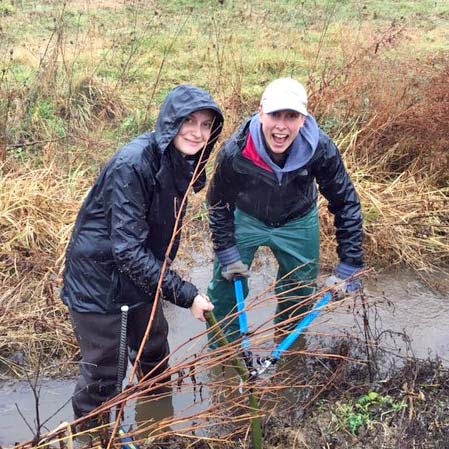
Several other agencies played a key role in the Miller project. Staff from the Berks County Conservation District, USDA’s Farm Service Agency and Natural Resources Conservation Service, and Berks Nature all helped make this Conservation Reserve Enhancement Program forested buffer and wetland restoration project a success.
These organizations are not just helping the Millers. They are also working with the Stroud Center to assist eighteen Berks County landowners who are tending new forest buffer plantings with advice, scouting, and materials to ensure robust buffer growth and survival.
The results are very encouraging. Conservation district staff report that across all eighteen buffers, 90% of the original trees planted are healthy and growing, and 88% of the shrubs. For restoration plantings that start with tiny seedlings, this is an outstanding success rate.
We thank our colleagues, the Millers, and all of our landowners and farmer cooperators for their strong conservation ethic, attention to detail, and hard work.

